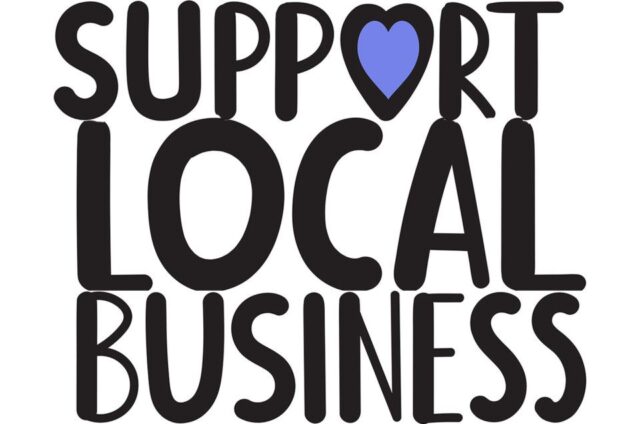
Online shopping has become a popular way for people to buy the items they need. Whether it’s clothing, furniture, or groceries, many of us now turn to the internet first when searching for something new. However, as online shopping grows, so too does the need to make sure our purchases are ethical. Many of such options can be sites such as Best Selling.
Ethical online shopping means making sure that you’re not buying from companies that use exploitative labor practices or engage in any irresponsible actions that contribute to social or environmental damage.
Thankfully, there are ways for consumers to ensure that their buying habits are kind to people and the planet alike. In this blog post, we’ll provide a comprehensive guide to ethical online shopping. We’ll go over what exactly ethical shopping is and some tips on how to do it responsibly. Let’s get started!
What is Ethical Online Shopping?
Ethical online shopping is simply the practice of being conscious of the origins of your purchases. You want to make sure that when you buy something, whether it be clothes or home appliances.
That your money isn’t going towards any unethical production processes or labor practices. This can include checking if there was any child labor used in making a product, or if an animal was harmed in production (like with fur).
Knowing where and how your products were made before you purchase them is key when engaging in ethical online shopping.
Tips for Ethical Online Shopping

Now that we know what ethical online shopping is, let’s take a look at some tips on how to engage in it responsibly:
Check for Fair Trade Certification:
Whenever you shop for anything, including food items, you should check for third-party certifications such as “Fair Trade Certified” labels from organizations like Fairtrade International or Rainforest Alliance Certified labels.
These labels guarantee not just responsible production conditions but also sustainable wages and fair working hours for agricultural workers and other laborers employed throughout the supply chain of these goods.
So if you see one of these certifications attached to an item you’re looking at buying, then go ahead knowing there’s been appropriate oversight over its production!
Do Your Research:
Before buying something online, spend a few minutes researching both the company selling the item as well as any comments related to its origins and production process by customers who have purchased it before you.
Often companies will have detailed information on their website about where they source their materials from and which countries they manufacture their products in, take advantage of this by reading up before spending your hard-earned cash.

You can also find helpful reviews from others who may have already bought similar things before so see what they have said about them too!
Buy Responsibly Sourced Materials:
Whenever possible always try to find items made from recycled materials such as organic cotton instead of regular cotton which uses toxic pesticides during the growing process, bamboo instead of wood which takes years longer than normal trees do replenish themselves, soy ink instead of petroleum-based ink, etc. These small shifts can make all the difference when trying to shop responsibly.
Shop Second Hand:
Second-hand stores are great places for getting good quality items without having to worry about their origins. Whether it be clothing, furniture, electronics, toys, etc.
Chances are secondhand stores will have exactly what you need while keeping your ethics intact because these stores don’t usually involve any exploitation during production/sourcing etc.
Support Local Businesses:

Supporting local businesses is another great way of contributing towards an ethical livelihood – most local business owners employ staff within an acceptable wage range (at least minimum wage) and source materials locally which keeps money circulating within communities thus helping local economies grow sustainably.
That said, opt out of large chain stores if possible so more ‘ethical’ enterprises may get access to capitalizing growth opportunities.
Avoid Fast Fashion:
Fast fashion involves cutting corners during design & production such as using non-durable fabrics, reducing garment quality & size range etcetera all to expedite manufacturing processes. As such, avoid fast fashion brands whenever possible & opt for more durable garments made with natural fibers (ex: organic cotton) alternatively.
This will ultimately help reduce waste associated with landfills created after fast fashion garments tear apart easily due to their poor-quality construction.
Ask Questions:
If ever uncertain whether an item meets your ethical standards, contact customer service directly & ask questions related to certification/social evaluation policies on the particular merchandise.
Moreover never hesitate to bring up issues surrounding sustainability/worker rights even though many companies may tend to sweep them under rug, now more than ever customers have the right to know the truth behind the products they purchase so don’t shy away from speaking up even if uncomfortable situations arise.
Shop Niche Markets:

It’s becoming easier every day to identify niche markets focusing exclusively on ethically sourced goods, usually, web shops found through word of mouth or online reviews. These sites heavily focus on sourcing materials, production processes & company policies, all adhering to the highest standards when it comes to ethical shopping.
As such, always look out for these web shops even if feel overwhelmed with options, usually they’ll provide insights may not find elsewhere.
Be Patient:
Finding ethically sourced products take time. Often companies hide behind elaborate marketing campaigns which mask their unethical practices. As a result, take your time researching details behind items you’re interested in before committing to purchase.
This will ensure you are making conscious decisions based on facts rather than assumptions. Furthermore don’t hesitate to ask questions if ever uncertain about anything. The customer service personnel will be more than eager to help clarify any doubts you might have.
Conclusion
Encourage friends, family & colleagues to adopt an ethical lifestyle, and share tips & tactics for shopping responsibly. The more people are aware of current issues surrounding sustainability, the easier it will be for everyone to make informed decisions when it comes to ethical shopping.

Ultimately these small changes can have a significant impact on reducing environmental exhaustion & helping countless communities prosper sustainably!












